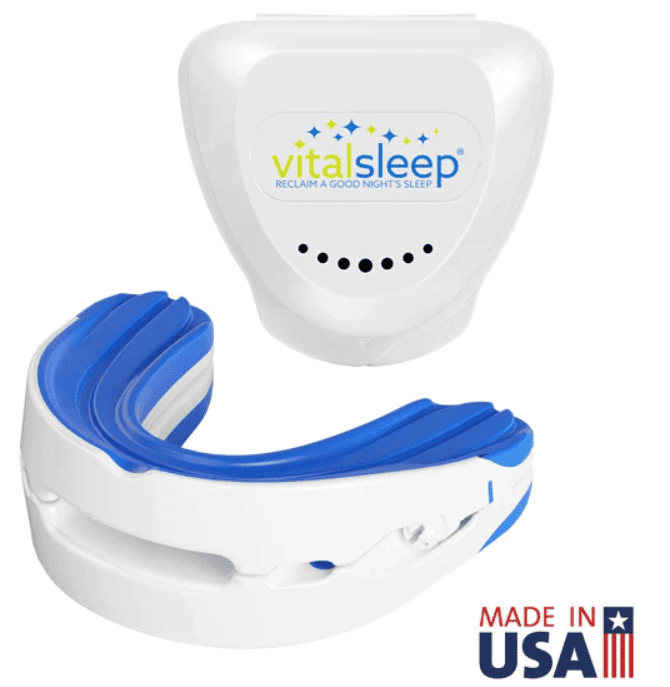
During the nocturnal rest time, many men find themselves with an unexpected companion – night sweats. Fear not, for you’re not alone in this perspiration. Night sweats for men are surprisingly common and usually don’t cause any additional issues. However, as a recent medical study states, uncontrollable sweating can create additional disturbances to your resting period.
Luckily, there is a solution. We’ll unravel the mystery of night sweats and present the 14 most common causes of night sweats in men. Additionally, we have 12 simple tips to overcome sweating and improve your sleep quality to be sweat-free.
Key Takeaways
- Night sweats in men can be caused by various factors, including infections, medications, hormonal imbalances, and lifestyle choices.
- Proper management, such as using breathable, moisture-wicking sleepwear, cooling the bedroom, and adjusting diet and alcohol consumption, can help reduce night sweats.
- Persistent or severe night sweats may indicate underlying health issues, requiring consultation with a healthcare provider for proper diagnosis and treatment.
- Addressing night sweats is essential for enhancing overall health and improving sleep quality.
What Causes Night Sweats in Men?
Night sweats stem from a variety of factors – from infections to hormonal fluctuations. Psychological and environmental triggers also play a role. These issues create a complex web, intertwining health and lifestyle, contributing to the frequent night sweats.
Here are the most common causes of nightly sweats:
- Infections: Infectious diseases like tuberculosis and HIV can trigger night sweats in men as the body’s immune response intensifies during sleep.
- Cancer: Certain cancer types, such as lymphoma and leukemia, may induce night sweats as a symptom of the body’s battle against abnormal cell growth.
- Medications: Side effects from medications like antidepressants and diabetes medications can disrupt the body’s thermoregulation, leading to nocturnal perspiration.
- Hypoglycemia: Low blood sugar levels, often associated with conditions like diabetes or insulin use, can prompt the body to release stress hormones, causing night sweats.
- Hyperthyroidism: An overactive thyroid, or hyperthyroidism, can elevate metabolism and body temperature, contributing to increased perspiration during sleep.
- Obesity: Excess body weight, especially in men with obesity, can lead to increased insulation and heat retention, fostering conditions conducive to night sweats.
- Sleep Apnea: While further elaboration awaits, sleep apnea, characterized by interrupted breathing during sleep, can contribute to night sweats in men.
- GERD (Gastroesophageal reflux disease) or Acid Reflux: Night sweats may arise from GERD or acid reflux, aggravated when lying down. This issue can be elevated with the correct sleeping position.
- Environmental factors: Sleeping in warm conditions or under heavy bedding can elevate body temperature, triggering night sweats in men.
- Excessive alcohol consumption: Intoxication from excessive alcohol consumption may disrupt the body’s natural cooling mechanisms, contributing to night sweats.
- Spicy foods: Consuming spicy foods, especially close to bedtime, can elevate body temperature, potentially leading to night sweats.
- Intense physical exercise: Vigorous physical activity, particularly close to bedtime, may elevate the body’s core temperature, resulting in nocturnal perspiration.
- Dehydration: Insufficient fluid intake can disrupt the body’s ability to regulate temperature, contributing to night sweats in men.
- Chronic pain conditions: Men experiencing chronic pain conditions may undergo heightened physiological stress responses during sleep, leading to night sweats.
Testosterone and Its Role in Men’s Night Sweats
Testosterone is an integral part of quality sleep. Testosterone has an effect on the hypothalamus, a part of the brain that regulates temperature. It warns the body to increase or decrease temperature to optimize bodily function. Young men have high testosterone, which enhances metabolic activity, leading to sweating.
Older men face frequent fluctuations in testosterone levels, which becomes a noteworthy cause of night sweats. As testosterone wanes with age, the body’s ability to regulate temperature falters. Other hormones then try to compensate for the loss of temperature regulation, which causes sporadic episodes of nocturnal sweating.
This hormonal imbalance, intricately linked to the aging process, unveils a connection between testosterone levels and the mysterious world of night sweats in men. Understanding this hormonal change sheds light on one facet of the multifaceted journey toward a restful night’s sleep.
Anxiety’s Link to Night Sweats
In the quiet hours of the night, anxiety often becomes an uninvited companion. Various psychological factors, most frequently stress and anxiety, create a disruption in the functioning of the body. The physiological response to stress prompts the body to release adrenaline, elevating heart rate and body temperature. It can cause various health issues, and one of them is excessive sweating.
If you are experiencing similar problems during the night, you should look into other night symptoms. It will help you determine whether your night problems are caused by anxiety. Anxiety-induced teeth grinding, for example, further exacerbates the nightly rest. A potential remedy for this issue lies in the form of a mouthpiece that prevents teeth chattering.
The Relationship Between Sleep Apnea and Night Sweats
Nightly sweats can sometimes indicate sleep apnea. Obstructive sleep apnea (OSA) is a disorder that causes periods of disrupted or fully blocked breathing. Men with OSA often grapple with increased night sweats due to disrupted breathing patterns, which are characteristic of this condition.
The struggle for breath prompts the body into a hyperactive state, elevating heart rate and triggering sweating. Understanding this intricate link sheds light on why OSA-prone men may endure this nocturnal ordeal more frequently. Reduced oxygen levels, especially during the night, create an imbalance in the body, which also affects thermoregulation, hormonal imbalances, and many other issues.
Specialized sleep apnea mouthpieces are a promising solution, mitigating the symptoms of sleep apnea and fostering a quieter and drier night’s rest. While they only aid in curing the cause of OSA, the immediate relief will help you fight nighttime sweating and other issues that reduce your sleep quality.
Health Concerns Signaled by Night Sweats
Night sweats, often dismissed as mere nocturnal discomfort, can be silent messengers of underlying men’s health concerns. That includes infections, immunity problems, and hyperhidrosis.
Below, we’ll unveil the potential health conditions that cast night sweats, emphasizing the crucial role of medical evaluation for persistent symptoms.
Night Sweats as Indicators of Infection and Immunity Issues
Night sweats, seemingly innocuous, may be harbingers of deeper health concerns. Certain infections, like tuberculosis and HIV, can also instigate nocturnal sweating as the body battles invaders. Recognizing night sweats as more than a bothersome bedtime companion is crucial. They serve as red flags, signaling potential immunity issues and underlying infections.
Vigilance is key to understanding the connection between night sweats and serious health conditions. Being attentive to your body will allow you to react in a timely manner. Medical attention received on time ensures comprehensive care and fortifies the body’s defenses against unseen adversaries.
Understanding Hyperhidrosis and Night Sweats
Hyperhidrosis is another reason for the nocturnal discomforts. It’s a condition of excessive sweating that is not directly related to heat, exercise, or other common causes. Night sweats, often stemming from this condition, unveil a persistent challenge. Hyperhidrosis, characterized by overactive sweat glands, can turn sleep into a clammy ordeal.
Fortunately, there’s a spectrum of treatment options for this issue, from clinical interventions to lifestyle adjustments. Navigating hyperhidrosis’s connection to night sweats sheds light on the intricate balance required to restore the tranquility of dry, restful nights for men grappling with the challenges of nocturnal perspiration.
Age and Its Impact on Night Sweats in Men
Age plays a pivotal role in the nocturnal symphony of night sweats for men. Younger adults may grapple with hormonal imbalances or lifestyle factors, while those over 50 might face shifts in bodily functions and underlying health concerns.
This chronological lens offers insight into the diverse ways age influences the occurrence of night sweats, contributing to the intricate tapestry of men’s sleep experiences.
Identifying Causes of Night Sweats in Young Men
The causes of night sweats in young men unveil a multifaceted list of potential causes. Hormonal imbalances, prominent in this nocturnal problem, are one of the first to be subjected to inquiry. When the body is still growing, estrogen levels are reduced, and testosterone might fluctuate. This change tricks the hypothalamus into acting as if the body is too hot or too cold.
Lifestyle factors, ranging from dietary choices to physical activity, are also important. They often accompany hormonal imbalances as differently active people, especially kids, have different levels of various hormones to suit their lifestyles. For example, active men usually tend to have more testosterone, while more passive young kids might have more estrogen.
The intricacies of night sweats in young men lead to the balance of hormonal factors and lifestyle choices. Understanding these early-life challenges aids in crafting tailored approaches for a generation navigating the complexities of nighttime perspiration.
Hormonal Changes Causing Night Sweats in Middle-Aged Men
As men tread through the middle-aged terrain, hormonal changes emerge as the reason for nocturnal perspiration. Night sweats in men under 40 often stem from hormonal fluctuation that naturally comes with age.
Another cause is lifestyle habits, which, intertwined with hormonal shifts, play a pivotal role in this perspiration saga. Middle-aged men grapple with the consequences of biological transformations and daily choices, leading to night sweats.
Navigating this stage requires a nuanced understanding of hormonal intricacies and lifestyle impacts, ensuring a more restful journey through the night for men traversing the realm of middle age.
Elderly Men and the Occurrence of Night Sweats
Night sweats can be especially common for elderly men and cause unique challenges. It gets harder to diagnose the exact causes of excessive sweat as they are often interlinked with other old-age health issues.
Night sweats in men over 50 often find their roots in underlying health conditions or medication side effects. The aging body, weathered by time, may grapple with conditions like hormonal imbalances or chronic illnesses, casting nocturnal discomfort into the sleep space.
Medications, essential allies against ailments, may unwittingly contribute to the nocturnal perspiration symphony. Understanding the nuanced interplay between health, medication, and age is paramount, guiding elderly men toward tailored strategies for a more peaceful night’s rest.
Lifestyle Choices Affecting Night Sweats in Men
Dietary decisions, physical activity levels, and even sleep environment contribute to the quality of rest and can lead to night sweats.
To reclaim serene nights, consider modifications for these simple habits: embrace a balanced diet, moderate spicy foods, and limit alcohol or nicotine consumption. Navigating these lifestyle nuances promises a more tranquil nocturnal journey, offering respite from the clammy grip of nighttime perspiration.
Dietary Influences on Night Sweats
Dietary choices can affect your rest time and cause or prevent night sweats in men. Consider steering clear of trigger foods and beverages to orchestrate a more harmonious sleep.
Spicy cuisines, caffeine-laden delights, and heavy, rich meals close to bedtime can elevate body temperature, instigating nocturnal perspiration. Opt for a diet rich in calming ingredients, embracing soothing teas and light, nourishing fare.
By sculpting a sleep-friendly diet, men can navigate the nocturnal landscape with fewer interruptions, savoring the sweet serenade of restful nights without unwanted perspiration.
Alcohol and Smoking’s Impact on Night Sweats
Alcohol and smoking can have a serious influence on your sleep quality. Nightly sweats for men are one of the most common issues caused by these bad habits. Partly due to men being more prone to start smoking and drinking.
Excessive alcohol consumption disrupts the body’s natural cooling mechanisms, while smoking introduces a host of toxins, both conspiring to elevate nocturnal temperatures. Reducing the consumption of these nocturnal curses brings lots of benefits to your sleep quality.
As men embrace healthier choices, the nightly rest quality will improve significantly and will prevent nocturnal perspiration. Being more mindful of your alcohol and cigarette intake is one of the simplest ways to improve your sleep and prevent uncontrollable sweating.
How to Reduce Night Sweats in Men
There are several different ways men can reduce their night sweats. Starting with very simplistic tools like embracing breathable sleepwear and lightweight bedding to promote optimal temperature regulation. Additionally, you can cool down the sleeping environment with fans or air conditioning.
However, if your night sweats are caused by more serious health issues, you may be tempted to cure those health issues first.
Either way, we have the needed solutions for all your sweating problems. So check out how you can reclaim the tranquility of uninterrupted, sweat-free sleep.
Mouthpiece for Sleep Apnea-Induced Night Sweats
If you’re looking for undisturbed sleep, the VitalSleep mouthpiece is a revolutionary solution for combating night sweats induced by sleep apnea. This device is not just a mere remedy; it’s a silent guardian that can vastly improve your night rest.
The VitalSleep mouthpiece offers a tailored fit, ensuring comfort that caters to the unique challenges posed by sleep apnea-induced night sweats. in addition, it has glowing reviews. Based on the in-depth analysis, the VitalSleep mouthpiece has proven its effectiveness in providing relief from the disruptive symptoms of sleep apnea.
More so, this mouthpiece seamlessly becomes a part of your sleep routine, offering a snug fit that ensures an uninterrupted night’s rest. And you can choose from a comprehensive range of anti-snoring mouthpieces, allowing you to find the perfect fit that aligns with your specific needs.
So, with the VitalSleep mouthpiece, you can bid farewell to the struggles with night sweats. This mouthpiece is the gateway to cool, tranquil nights and waking up refreshed each morning. There are other mouthpieces that might provide similar benefits. However, considering the features and the prices of VitalSleep, it’s simply the best option against sleep apnea-induced night sweats.

Body Cooling Techniques for Night Sweat Management
- Breathable, Moisture-Wicking Sleepwear: Choose sleepwear crafted from breathable, moisture-wicking fabrics to enhance airflow and keep the body cool during the night.
- Lightweight, Breathable Bedding: Opt for lightweight, breathable bedding materials to promote better air circulation, preventing overheating and reducing the likelihood of night sweats.
- Bedroom Cooling (e.g., fans, air conditioning): Maintain a cool sleep environment with fans or air conditioning to regulate temperature and create a comfortable atmosphere conducive to restful sleep.
- Cool Showers Before Bedtime: Incorporate cool showers into your pre-bedtime routine to lower your body temperature, promoting a more relaxed state and minimizing the risk of nocturnal perspiration.
Natural Approaches to Managing Night Sweats
- Stress-Reduction Techniques: Embrace practices like meditation and yoga to alleviate stress, promoting a calm mental state that can reduce the occurrence of night sweats.
- Healthy Weight Maintenance: Maintain a healthy weight through regular exercise and balanced nutrition to mitigate factors contributing to night sweats, such as obesity.
- Balanced Diet (Avoid Spicy Foods, Large Meals at Night): Opt for a balanced diet, steering clear of spicy foods and large meals close to bedtime to minimize triggers for nocturnal perspiration.
- Limit Alcohol and Caffeine Intake: Moderation in alcohol and caffeine consumption helps regulate body temperature, reducing the likelihood of disruptive night sweats.
- Adequate Hydration: Stay well-hydrated throughout the day to support the body’s natural cooling mechanisms and prevent dehydration-related night sweats.
- Regular Sleep Schedule: Establish a consistent sleep routine, ensuring adequate and quality rest, which can positively impact hormonal balance and reduce the occurrence of night sweats.
Medical Treatment Options for Night Sweats
- Hormonal Therapy (Under Medical Guidance): Explore hormonal therapy under professional guidance to address underlying hormonal imbalances contributing to night sweats.
- Prescription Antiperspirants for Severe Cases: In severe instances, consider prescription antiperspirants as a targeted solution to manage and reduce excessive perspiration during the night, under medical supervision.
When Night Sweats in Men Require Healthcare Consultation
While occasional night sweats are common, certain scenarios demand prompt healthcare attention. Persistent or severe night sweats may signify underlying health concerns such as infections, hormonal imbalances, or more serious conditions. If accompanied by additional symptoms like unexplained weight loss, fever, or fatigue, seeking professional consultation becomes imperative.
Timely healthcare intervention ensures a comprehensive evaluation, pinpointing potential causes, and crafting a tailored approach to address the root issues. When night sweats disrupt your nights persistently or intensify, consulting with a healthcare provider becomes a crucial step toward comprehensive well-being.
Addressing Night Sweats for Enhanced Health and Care
When it comes to men’s health, addressing night sweats is pivotal for overall well-being. From infections to hormonal imbalances, we’ve explored multifaceted causes and effective solutions.
Night sweats, often signals of underlying health issues, urge men to pay attention. By recognizing the link between night sweats and waking up at night, reclaiming tranquility becomes possible.
Discover more insights into nighttime disruptions by consulting healthcare professionals, exploring lifestyle adjustments, and embracing unique solutions. Here’s to serene nights, revitalized mornings, and a harmonious journey to well-rested living.



